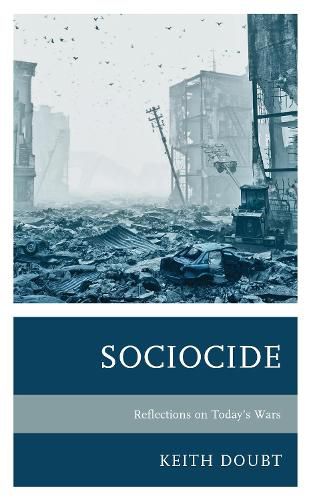Readings Newsletter
Become a Readings Member to make your shopping experience even easier.
Sign in or sign up for free!
You’re not far away from qualifying for FREE standard shipping within Australia
You’ve qualified for FREE standard shipping within Australia
The cart is loading…






Wars have a destructive impact on society. The violence in the first case is domicide, in the second urbicide, in the third genocide, and in the fourth, the book introduces a neologism, sociocide, the killing of society. Through the lens of this neologism, Keith Doubt provides persuasive evidence of the social, political, and human consequences of today’s wars in countries such as Bosnia and Iraq. Sociocide: Reflections on Today’s Wars rigorously formulates, develops, and applies the notion of sociocide as a Weberian ideal type to contemporary wars. Drawing upon sociology, anthropology, philosophy, and literature, Doubt analyzes war crimes, scapegoating, and torture and concludes by examining capitalism in the face of the coronavirus pandemic as a sociocidal force. Embedded in the humanistic tradition and informed by empirical science, this book provides a clear conceptual account of today’s wars, one that is objective and moral, critical and humanistic.
$9.00 standard shipping within Australia
FREE standard shipping within Australia for orders over $100.00
Express & International shipping calculated at checkout
Wars have a destructive impact on society. The violence in the first case is domicide, in the second urbicide, in the third genocide, and in the fourth, the book introduces a neologism, sociocide, the killing of society. Through the lens of this neologism, Keith Doubt provides persuasive evidence of the social, political, and human consequences of today’s wars in countries such as Bosnia and Iraq. Sociocide: Reflections on Today’s Wars rigorously formulates, develops, and applies the notion of sociocide as a Weberian ideal type to contemporary wars. Drawing upon sociology, anthropology, philosophy, and literature, Doubt analyzes war crimes, scapegoating, and torture and concludes by examining capitalism in the face of the coronavirus pandemic as a sociocidal force. Embedded in the humanistic tradition and informed by empirical science, this book provides a clear conceptual account of today’s wars, one that is objective and moral, critical and humanistic.